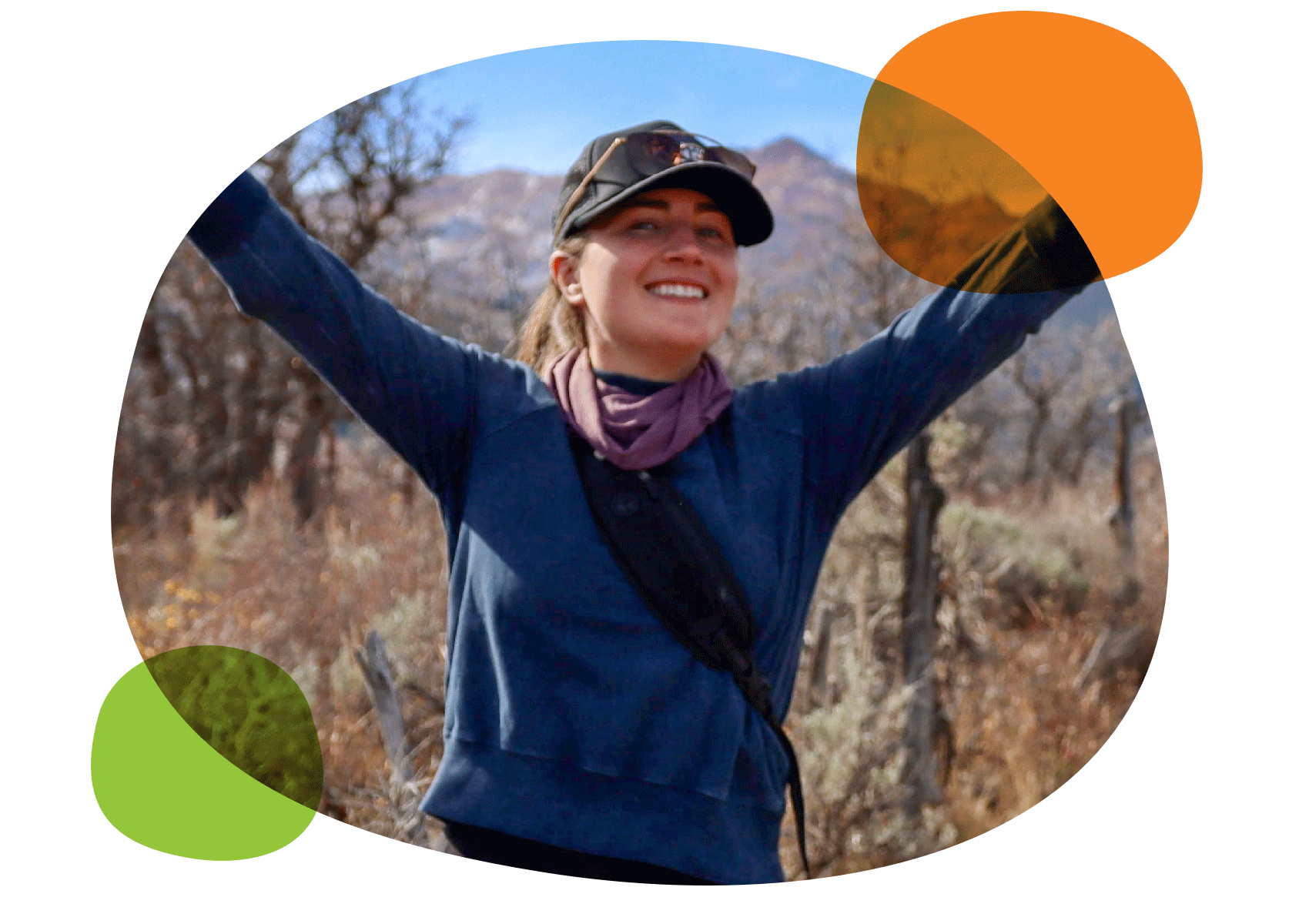Meet Rachel Elliot

I choose my future.
Rachel Elliott sees a future where cell and gene therapy is a solution for all cancer patients.
“I’m a huge proponent of training one’s own immune system to fight off disease rather than being filled with drugs that kill the cancer but also debilitate the immune system,” says Rachel, whose own cancer treatment path was ripe with chemotherapy-related complications before she received the gene therapy that saved her.
Rachel’s initial acute lymphoblastic leukemia (ALL) diagnosis came in July 2008 when she was 11 years old. She began the standard two-year chemotherapy protocol and endured pneumonia, a ruptured appendix, strep throat and other issues. With grit, determination and a talented medical team, she achieved full remission.
“The cancer responded well to the chemotherapy, but my body did not,” says Rachel.
Rachel’s story is one of resilience in overcoming challenges. “Through all the adversity that was thrown my way, I chose to focus on the good, view every day as a miracle and open myself up to appreciate each day versus being bogged down by my diagnosis,” says Rachel. “I had to look past the struggle and hurt. For me, that was looking to return to school, get back on the lacrosse field and travel once again.”
She did. “The chemo was challenging but ultimately successful with full remission,” says Rachel. “I went back to doing all the typical things a girl in the Virginia suburbs would do – survived AP classes, went to school dances and led our lacrosse team to a conference championship – all with a newfound perspective on how precious life really is.”
Next, it was off to the College of Charleston. During her 2015 freshman spring break, she noticed unusual bruising on her legs. Blood work confirmed that she had relapsed.
Standard ALL relapse protocol called for a second two-year chemotherapy treatment plan with more intense and invasive drugs. Two months into that treatment, Rachel experienced severe bacterial infections which landed her in the intensive care unit and, ultimately, into an induced medical coma, hooked up to machines to help her heart and lungs work while she overcame the infections ravaging her body.
Her resilience was challenged once again – and once again she won. After 100 days in the hospital, she returned home and spent the next several months regaining her strength with physical therapy while taking online classes to stay on track for her college degree. As no cancer cells were present in her body, she decided to stop chemotherapy and focus on recovery. Unfortunately, the outcome was not ideal, as she experienced her second relapse in October 2016.
“At that point, I knew I needed something different,” says Rachel. “It was like living in a nightmare to have the same team of doctors give you the same diagnosis three times in eight years.”
Asking a lot of questions and doing online research led the family to the Children’s Hospital of Philadelphia (CHOP) where she enrolled in the latest iteration of the CAR T-cell therapy clinical trial spearheaded by the work of Alliance for Cancer Gene Therapy Research Fellow and Scientific Advisory Council Member Carl H. June, MD, of the University of Pennsylvania Abramson Cancer Center in Philadelphia, PA.
“The team at CHOP collected my T cells in October 2016 and started a light chemotherapy treatment to keep the cancer at bay and make room for the re-engineered T cells to be re-introduced to my body,” says Rachel. “While the lab turned my T cells into supercells to fight off the cancer, we returned to Virginia.”
By mid-December, Rachel and her family were back in Philadelphia where doctors at CHOP began introducing her re-engineered T cells to her system. For the next month and a half, she received injections and was closely monitored on an outpatient basis.
This time when she returned home, it was for good. “The CAR T-cell therapy worked for my cancer – and for my body,” says Rachel.
She started classes in person at Virginia Commonwealth University the day after she and her family returned from CHOP and since then, there’s been no looking back. Rachel got back to running and yoga, enjoying the outdoors and nannying while continuing her college career. She earned a degree in business in May 2019 and landed a job at Capital One shortly thereafter.
“While I’m loving and learning and growing in my career, I want to make room for the next part of my story,” says Rachel. “I want to take the lessons I’ve learned about resilience and advocating for myself to help other families facing this situation or other life challenges.
“I also want to help advance cell and gene therapy. I believe gene and immunotherapy will become the next pillar of cancer treatment and lead us closer to a cure! Alliance for Cancer Gene Therapy is at the forefront of many incredible advances in cancer treatment. I always will be an advocate and supporter of their work to make these treatments more accessible in hopes they lead many more patients like myself to a forever remission!”



